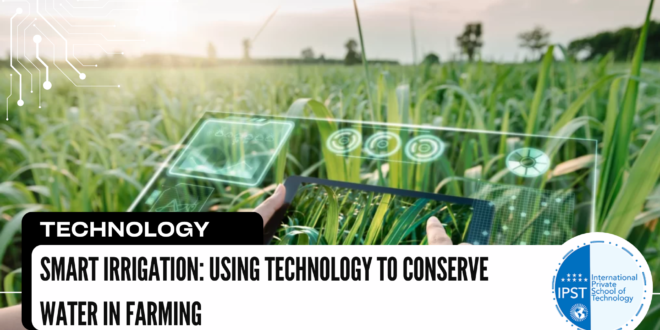The Role of Smart Irrigation in Sustainable Farming
Smart irrigation is a modern solution that helps farmers optimize water usage, reduce waste, and enhance crop yields. This technology-driven approach to irrigation ensures that water is applied more efficiently, conserving precious resources and improving sustainability in farming practices.
How Smart Irrigation Works
1. Soil Moisture Sensors
Soil moisture sensors are key components of smart irrigation systems. They monitor the moisture levels in the soil and trigger irrigation only when needed. This prevents overwatering, reduces water waste, and ensures crops receive the right amount of hydration.
2. Weather Data Integration
Smart irrigation systems integrate local weather data to adjust watering schedules. If rain is forecasted, the system will delay or reduce irrigation, preventing unnecessary water use and conserving resources.
3. Remote Monitoring and Control
Farmers can remotely control their irrigation systems using smartphones or computers. This feature allows for real-time adjustments and ensures that irrigation schedules remain flexible and responsive to changing conditions.
Benefits of Smart Irrigation
- Water Conservation – By applying water only when needed, smart irrigation systems reduce overall water consumption, helping conserve this valuable resource.
- Cost Efficiency – Smart irrigation leads to savings on water and energy bills by preventing overwatering and minimizing the use of irrigation equipment.
- Increased Crop Yields – Consistent moisture levels improve plant health, resulting in higher crop yields.
- Sustainable Farming – By reducing water waste, smart irrigation systems contribute to sustainable farming practices and environmental conservation.
Types of Smart Irrigation Systems
1. Drip Irrigation
Drip irrigation delivers water directly to plant roots through a network of tubes and emitters. This method is ideal for water conservation, as it minimizes evaporation and runoff, ensuring water is efficiently absorbed by plants.
2. Sprinkler Systems
Modern sprinkler systems are equipped with sensors that monitor soil moisture and adjust water flow accordingly. These systems ensure even water distribution, minimizing waste and ensuring crops receive the right amount of water.
3. Pivot Irrigation
Pivot irrigation involves a rotating system that covers large areas. With the addition of soil moisture sensors and weather data, this system can efficiently distribute water while minimizing waste.
Challenges and the Future of Smart Irrigation
While smart irrigation systems offer numerous benefits, their adoption can be hindered by the high initial cost of installation and the technical expertise required to operate and maintain the systems. However, as technology continues to advance and prices decrease, smart irrigation will become more accessible to farmers of all sizes.
In the future, smart irrigation will play a critical role in addressing water scarcity and ensuring the sustainability of agriculture, helping farmers produce more with less water. By embracing these technologies, farming can become more efficient, cost-effective, and environmentally friendly.
 International Private School of Technology المدرسة الدولية الخاصة للتكنولوجيا Private School مدرسة خاصة للتكوين المهني
International Private School of Technology المدرسة الدولية الخاصة للتكنولوجيا Private School مدرسة خاصة للتكوين المهني


